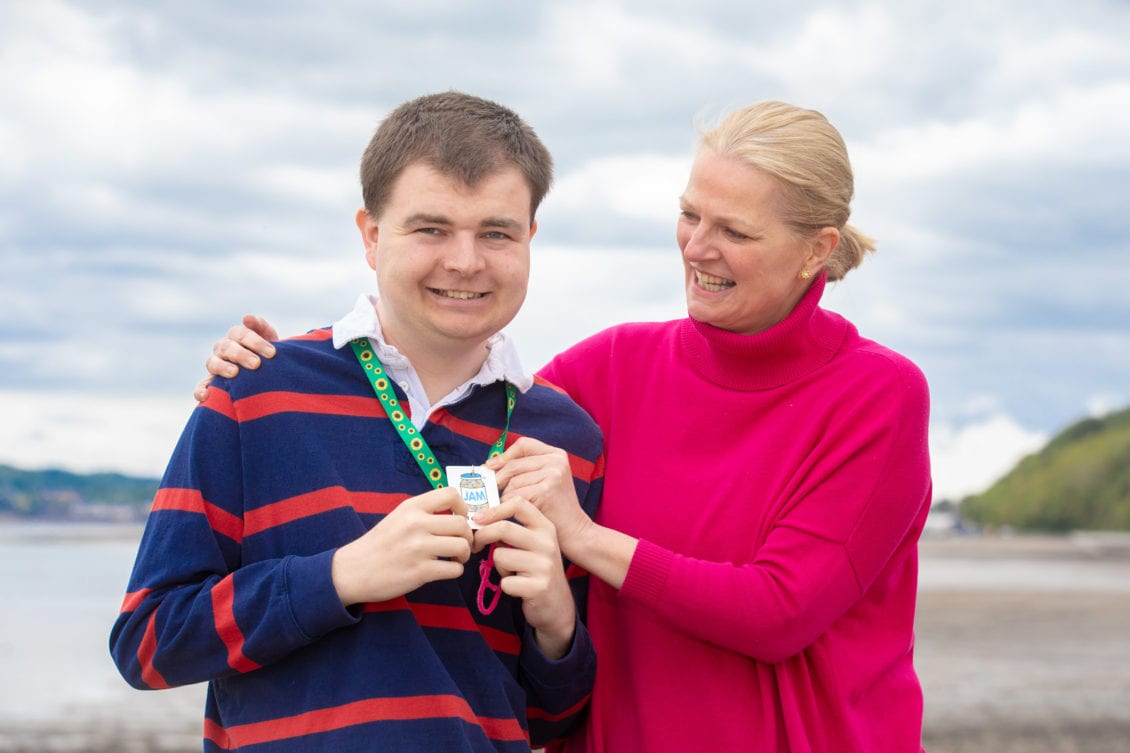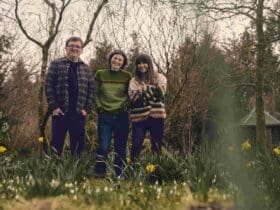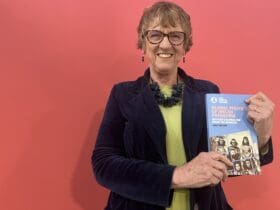A business leader with a severely autistic son has set up a social enterprise to help companies tap into the £249 billion of spending power of disabled people in the UK.
Davina Carey-Evans, who runs the Anglesey-based event and marketing company Sbarc, set up Piws (Welsh for purple) as a Community Interest Company to help businesses make venues more accessible to everyone.
The aim is to reduce isolation and encourage access so everyone, including those with hidden disabilities, can enjoy community lifestyle activities across North Wales.
Mum-of-three Davina, who hails from Criccieth, has first-hand knowledge of the difficulties faced by people with hidden disabilities through her son Benjamin, 25.
According to Davina, she wants to help companies make simple changes that will improve accessibility in restaurants, bars, activities and attractions.
The annual spending power of the disabled community in the UK is £249 billion so tapping into the so-called ‘Purple Pound’ made good financial sense.
Davina said: “Benjie is severely autistic and non-verbal but outwardly he has no visible disability. He’s six foot five and a big man but has the abilities of a young child.
“He’s totally reliant on people to guide him. Growing up people would look at him just believing he was a naughty or unruly child as his disability was hidden.
“Benjie would do things that were totally inappropriate and it was always difficult. I remember so well going, as a family, to an attraction and within minutes of going I knew Benjie was going to lose it. He was over stimulated.
“I asked the guy at the entrance if we could just leave but was told no, we had to use the exit at the other end of the attraction. You’re unable to stand your ground as you can’t afford to cause more growing anxiety.
“Before I could stop him Benjy picked up a child from out of a pushchair and threw the child before getting in the pushchair himself. Understandably people were horrified but that whole situation was unnecessary and could have been avoided.”
“People would look at me and shake their heads, I don’t blame them for not understanding. His disability was hidden and no one knew. Things got so much better when I bought a supply of T-shirts with the message ‘I’m not naughty I’m autistic’ on the front.
“People then seemed to accept his disability and understand that while he may appear ‘normal’ he isn’t.
“We have to somehow get away from thinking that disability is linked to wheelchair use, it isn’t there are lots and lots of disabled people that may outwardly show no sign of disability.”
“It’s about accessibility not disability. It’s about making sure, for example, that someone who is using a colostomy bag or similar product can use a disabled toilet in a public place without being judged simply because they look like they haven’t got a disability normal.”
Davina wants to raise awareness and increase the use of disabled symbols.
She added: “The blue badge wheelchair symbol represents all disabilities but there are 36 symbols representing all conditions but only 20 per cent are supported by the wheelchair symbol. We need to promote more symbolism opportunities.
“We need to encourage recognition that hidden disabilities are not affecting just a small minority and instead show that it is a normal part of life and that 80 per cent of disabilities registered have hidden impairments.
Half the households in the UK have a connection to disability and there are 11.5 million registered disabled people in the UK.
“We also need to promote the fact that 31 per cent of the UK workforce have been formally diagnosed with a mental health issue.”
“The aim of Piws, which is a not-for-profit-company, is to encourage access for all to enjoy, to participate and be part of community lifestyle activities.
“It’s important everyone can feel confident in visiting various locations in the knowledge that we will be welcomed, understood and catered for.
“At this time Piws is being run as a pilot giving it time to build public feedback and support, plus bring on more expertise in all areas of accessibility from nappy changing facilities to gender neutral toilets and from automatic doors to quiet spaces.”









Leave a Reply
View Comments